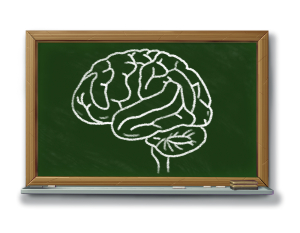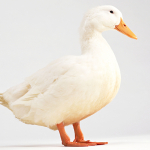“Knowing about knowing” sounds very philosophical, well it is, and it’s an integral part of being a fully developed human being. Brainstorm explains, that according to current science, “The overall movement of the brain’s development is to become more integrated… The result of such a process is to have more efficient and specialized processing of information” (pg. 89). Because the teenagers brain is essentially being overhauled in the process of myelination, “Our emerging adolescent minds begin to consciously and creatively explore the deeper meanings of life, of friendships, of parents, of school, of everything” (pg. 90).
Adolescence gives rise to metacognition, and parents and teachers should recognize the difference between the awareness levels in teens, and the awareness that dominates the thinking of younger children. “Rather than the concrete way of thinking and the fact-based learning that dominates in children during the elementary school years, the learning curve for us as teens involves a focus on more complex concepts. Our literal experience of being aware of life explodes with new visions of what is real, visions that in childhood may not have even crossed our minds.” Essentially we start to reflect on our feelings and thoughts in a whole new, and hopefully exciting way.
This leads me back to philosophy, and to the exemplar for metacognition, Socrates. Socrates questioned everything, and encouraged his students to do so as well, which lead to his sentence of death for the crimes of impiety and corruption of the youth. Ironically, one of my best classroom tools is the Socratic Seminar. (If you would like a PDF copy of the protocols for your classroom, click this link Socratic Seminar, provided by Expeditionary Learning.)
Last week I asked my seventh grade students to read an extensive overview of Greek Philosophy. The article was retrieved through research by one of my students in order to finish an earlier assignment to build a Contributions of Ancient Athens database. We utilized the social engagement piece by splitting the article into four sections and having groups of four analyze and discuss it. When seminar rolled around I hit the kids with these questions:
1. Do religious or magical explanations ever prevail over other observations and logic? How can a philosopher change a “believer’s” perspective? Should they? Why?
2. What contemporary (modern) beliefs should be questioned? What “accepted doctrines” should be rejected?
3. In a “Utopian” society, would philosophers make the best leaders? Why? Why not?
4. What knowledge and ideas from the past should be synthesized now “in order to determine which form of government is best”?
These questions were all related to the background knowledge from the article. They are deep, and so they should be, for the adolescent is able to “think in conceptual and abstract ways a ten-year-old cannot even imagine” (pg. 93). What exactly happens in a Socratic Seminar is not always pretty. There are moments of awkward silence, heated emotions, and massive amounts of frustration. One student simply folded her arms at the proposition of engaging in such dialogue. When I asked her why, she explained that, “We are just grains of sand on a giant beach called life, why bother with this stuff?”
I responded, “I think you just stated your personal philosophy. You my friend, are an existentialist.” She smiled, and showed me that albeit painful, she is ready for metacognition, if I meet her where she is, and not where I demand she be. When I checked my email later that night I received a scolding message from another student; “Why didn’t you facilitate our discussion more! I didn’t like how things went!” After reading this I thanked her for her feedback, and apologized for her unhappiness, but also recognized inside myself that the Socratic Seminar provided a bridge to thinking about thinking that direct instruction simply cannot touch. Philosophy is a struggle, sometimes argumentative, sometimes polite, but always provoking. It is our job as adults to encourage critical thinking challenges, and ease the adolescents in our lives carefully out of the world of childhood, and into the sometimes stormy realm of metacognition.
Nicholas Philliou, 7th grade humanities teacher in Durango, Colorado
Image Credit: Lightspring / Shutterstock.com














Leave a Reply